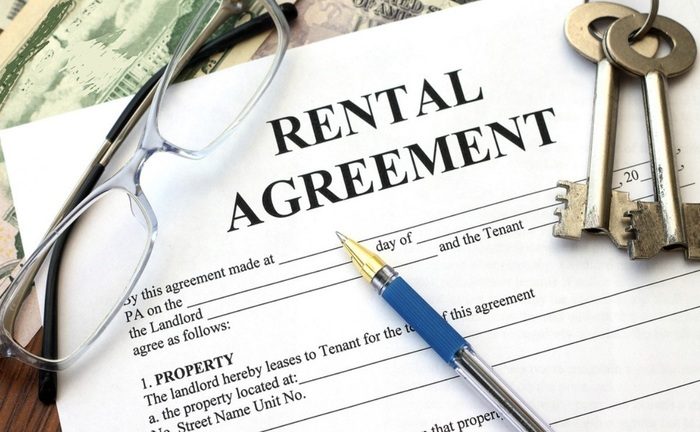Moving is one of the most stressful processes in a person’s life. Many students, families, or individuals are forced to move to another state to complete their assignments simply because they have terminated a lease and need to move to a new home.
Landlords must require specific documentation from tenants for them to reside in their apartments. They have the right to terminate the lease if they are satisfied with the rent payment and the tenant’s behavior. Conversely, they can also send an eviction letter.
Why send a lease renewal or eviction letter?
Through a lease, the tenants and the landlord agree that the tenant must pay a certain amount of rent, maintain the premises in good condition, and other items that the landlord will require according to the laws of each state. To keep the tenant informed, the landlord must send a letter about changes to the rent, such as a rent increase.
On the other hand, the landlord can evict the tenant at any time if they do not pay the rent or if any inconvenience arises. In this case, it is also essential to contact the tenant to notify them about the eviction and that they will have a certain amount of time to leave the apartment.
The eviction letter is the last resort that the property owner can take since it is not in the owner’s interest that the apartment is left without tenants since it is a loss of money in case a new resident is not found. If the tenant does not pay the rent, the best thing to do is notify them through a letter.
If they don’t pay what they owe, they must pack their bags and find a new home. This is why it is better to have a good relationship between both parties to avoid this last instance.
Whatever the reason, whether it is an eviction or a renewal, a letter should be sent to the tenant to let them know about the situation.

What is a lease non-renewal letter?
The landlord must write a lease non-renewal letter to inform the tenant that they will no longer renew the tenancy with the tenant due to reasons that must be specified in the notice. If an eviction is requested, the landlord generally sends the letter and gives the tenant 30 or 60 days to vacate the apartment, so the landlord must notify at least 70 days before sending the letter.
If you are a landlord and do not work with any real estate company, you will need to take care of these leases, for which you need to be aware of your state’s laws on lease renewal time, as they are not all the same and vary from tenancy to tenancy.
Why shouldn’t you renew your lease?
There are several reasons why the landlord may choose to terminate the lease and request the tenant’s eviction or non-renewal of the lease. Among these reasons for the landlord, we can mention:
- They want to rent his property to another person.
- They put their property up for sale.
- They no longer lease the apartment.
- The tenant pays the rent late or not at all.
- The property has been damaged during the rental period.
- Neighbors complain about disturbing behavior in the unit.
How to Write an Eviction Letter
As mentioned above, the landlord must usually serve eviction notices between 70 and 90 days. This depends on each state, as some states do not require advance notice. The eviction letter should contain essential information regarding the lease and contact information for both parties. Some of the essential items requested are:
- First and last name of the landlord and tenant.
- Contact information for both parties.
- Address and unit number of the property being rented.
- Original and copy of the lease agreement.
- Renewal policies and changes to the terms of the original lease.
- Last month’s rent payment date or due date.
- Updated rent amount, if necessary.
- Lease termination date.
- Landlord and tenant signatures.
Below, you can download examples of letters to tenants to renew the lease or vacate.
How to write a lease renewal letter?
If you have reached an agreement or have never had any problems with the tenant, you can encourage the tenant to renew their lease through a letter, which should be sent 30 to 60 days before the end date of the current lease.
The renewal lease allows the tenant time to decide whether to continue renting the property or move out. In addition, this lease will let the landlord know if they will continue renting to the tenant or if they will have to find someone else to rent their property. If the landlord decides to increase the rent, this should be announced in the letter to the tenant to renew the lease or vacate.
Why is it a good idea to renew a lease?
The landlord has several benefits if the tenant chooses to renew their lease since the tenant is someone they already know. It makes sense to keep the tenant for several reasons:
- No need to find a new tenant
Searching for a new tenant is sometimes very stressful and frustrating since you can only sometimes find someone who wants to rent the property. On the other hand, there is a significant operating expense that can cost anywhere from 35% to 80% of the gross operating income (GOI), i.e., all costs related to finding a new tenant, such as, for example:
- Advertising.
- Cleaning and repairs of the apartment.
- Maintenance of the place.
- Extra fees, such as HOA fees, or for screening tenants.
- No additional expenses
By keeping the old tenant, certain expenses are avoided, and a certain amount of retention income is assured since the person who rents will continue to support the contract, and it is not necessary to find someone new to fill the vacancy (which would mean a loss of money).
- Keeping the tenant
Suppose the landlord has had a good experience with the tenant. In that case, it is best to maintain the relationship and convince the tenant to sign and renew the lease, a way to avoid stress for both parties since prevent resident will avoid the fatigue of finding a place to live. The landlord will not have to spend money and effort to find a new tenant. This is why it is convenient to maintain a good relationship with the tenant.
- Saving time and money
As mentioned above, the tenant will save time in finding a new place to live, while the landlord will save time and money in finding a new tenant to rent their property since they have to do paperwork that isn’t easy nor cheap.
References
- Editorial Team. “How to Write a Lease Termination Letter (Free Templates) | Rent.Com Blog.” The Rent. Blog : A Renter’s Guide for Tips & Advice, 8 June 2022, https://www.rent.com/blog/lease-termination-letter/.
- Rohde, Jeff. “How to Write & Send a Lease Non-Renewal Letter (Free Template).” Stessa, http://www.facebook.com/StessaHQ/, 1 Dec. 2021, https://www.stessa.com/blog/lease-non-renewal-letter/.
- Ruhlmann, Olyvia, and Susan Finch. “How to Write a Rent Increase Letter (Free Template).” Apartment List – More than 5 Million Apartments for Rent, Apartment List, 6 Oct. 2022, https://www.apartmentlist.com/rental-management/rent-increase-letter-template.


